As the season for spring Tea's fragrant aroma arrives once more, tea mountains across the province are a lush green. Today, The Yunnan Daily takes its readers to the tea mountains of Nanmei Township in Lincang District and Mengban Township in Yongde County to experience the charm of Lincang's Spring Tea.
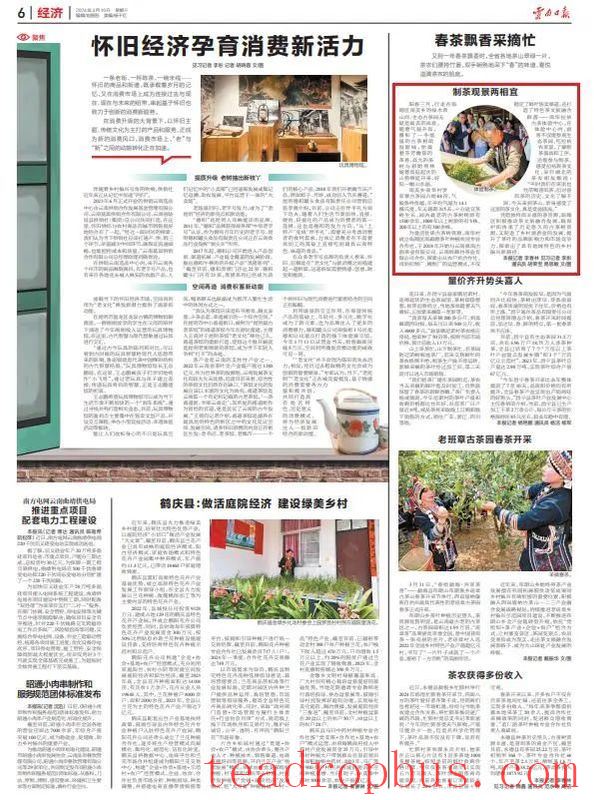
Spring Tea Fragrance and Busy Harvest
With the arrival of the season for spring tea's fragrant aroma, tea mountains across the province are a lush green. Tea farmers, with bamboo baskets slung around their waists, skillfully pick the taste of “spring,” their faces filled with joy.
Tea Making and Scenic Enjoyment Combined
In early March, walking through the green mountains and clear waters of Nanmei Township in Lincang District, the ecological ancient tea gardens are undoubtedly the most beautiful scenery. As temperatures rise, ancient tea trees that have accumulated energy over the winter sprout new green leaves, emitting a rich and fragrant aroma. The towering tea trees and primitive dense forests stretch out along the undulating mountains, resembling a landscape painting.
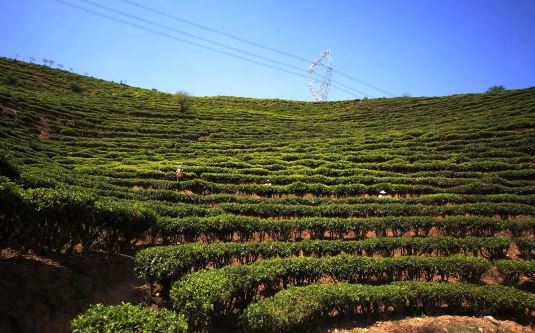
The ancient tea garden in Luojiazhai Village, Nanhua Village, Nanmei Township covers an area of 68 acres, with excellent climate conditions, an average annual temperature of 14.1 degrees Celsius, and 315 days without frost each year, making it very suitable for the growth of tea trees. The oldest tea tree in the garden is over 1,500 years old, there are five trees over 1,000 years old, and more than 300 trees over 200 years old.
To make better use of high-quality ancient tea tree resources, Nanhua Village established the Nanmengyuan Tea Plantation Farmers' Professional Cooperative, which began cooperating with Yunnan Dian'nan Guyun Tea Industry Co., Ltd. and Yunnan Apogu Tea Industry Co., Ltd. in 2025. They explored an operational model from farmers to the cooperative, and then to the primary processing factory and refined tea factory, stabilizing the sales channels for fresh leaves while also creating a unique cluster integrating Tea culture, tourism, and local features—the Nanhua Lahu Ancient Tea Experience Center. Inside the experience center, visitors can not only visit ecological tea gardens, enjoy Lahu-style home-cooked meals, learn about tea-making tools and processes, but also participate in tea making and experience Lahu tea culture. Tea enthusiast Hu Youwei from Hubei said: “We often drink Pu'er tea at home, but we don't know much about its history and culture. Coming to the tea mountain today and experiencing the local tea culture firsthand has been very enlightening.”
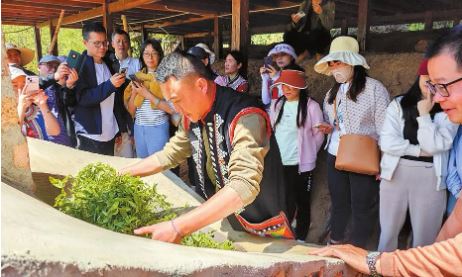
Through its unique and abundant tea resources, Lincang District actively promotes the integration of tea culture, tourism, and development. This not only protects and carries forward the long history of ancient tea tree resources but also promotes the development of rural tourism, enhances the brand influence and market competitiveness of tea, and explores a new path for rural revitalization with regional characteristics.
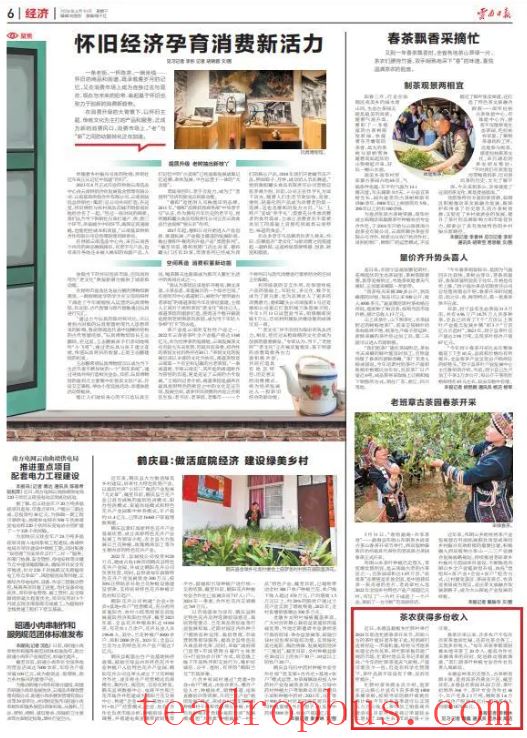
Multiple Sources of Income for Tea Farmers
Recently, the 2024 Lincang Mengfei Spring Tea Harvest Festival was held in Mangfei Village, Mengban Township, Yongde County. Tea enthusiasts from all directions gathered here, and dealers saw this as a market opportunity, establishing cooperative relationships with local tea farmers to bring Mengfei tea to a broader market. Party Secretary Li Xinfu of the Mangfei Village Party Branch said: “This year, due to weather impacts, the output of Mengfei tea may be less, but under scientific management, the quality of the tea has not decreased, but rather improved.”
Tea farmer Xue Yongbing introduced that his family owns over 5 mu of tea land and more than 1,000 tea trees in the core area of Zhengshan. Based on the current purchase price of fresh leaves, he can achieve an income of around 50,000 to 60,000 yuan just during the spring tea season. Tea processing and sales merchant Xiao Jianrong said that orders from outside the region have increased by around 20% compared to last year, indicating a promising market outlook.
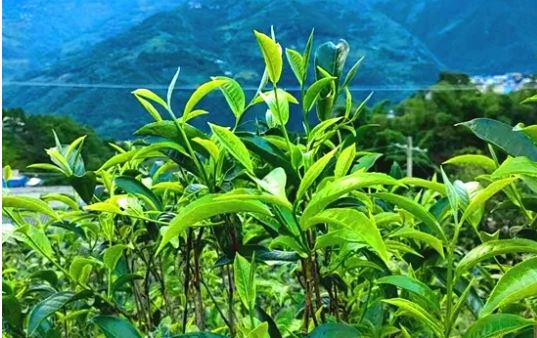
Since the start of the spring tea harvest, many households have not only been busy in their own tea fields but have also worked at tea companies, achieving multiple sources of income. “During each tea-picking season, we recruit over 20 local tea pickers, improving the efficiency of the cooperative's picking while promoting the prosperity of the people,” said Yu Bin, head of the Mingrenyun Tea Plantation Professional Cooperative.
Yongde County has a long history of tea cultivation and abundant ancient tea tree resources, making it a prime production area for Pu'er tea. To date, Yongde County has 252,200 mu of tea gardens, 368 primary tea processing facilities, and 46 tea cooperatives. It produces 21,000 tons of raw tea and 16,000 tons of refined tea annually, with a comprehensive output value of 3.828 billion yuan, increasing the per capita income of tea farmers by 3,875.92 yuan.
Source: Today's Lincang, Yunnan Daily, Li Chunlin, Sui Xin, Li Tong, Hu Rongbao, Yi Simin, Fan Yongzheng, Gao Jie. Information sharing is valuable; please contact us for deletion if there are copyright issues.